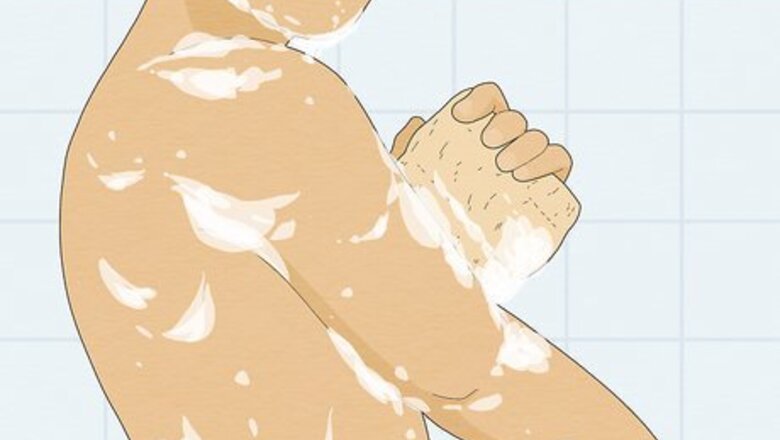
views
Establishing a Skin Care Routine
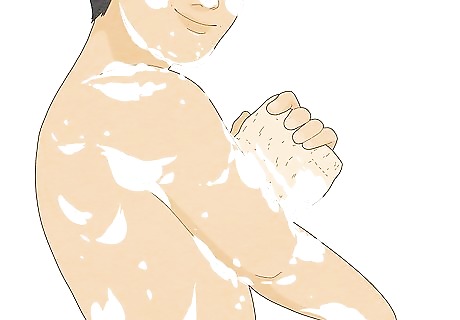
Wash your face and body daily. While you’re in the shower, lather up with a moisturizing soap or body wash and use a natural scrubber to remove dead skin and restore vital moisture. If you have regular or dry skin, you can probably get away with cleaning your skin once a day, or even every other day. If you have particularly oily skin, you may need to step it up to twice a day. However, make sure to wash your skin any time it gets sweaty, such as after working out. To keep things simple, look for a cleanser that you can use on both your body and face. However, if you are prone to breakouts, then you may want to invest in a special cleanser for your face. Look for facial cleansers with vitamins A, C, or E. These vitamins will help to wash off common irritants that get on your skin during the day. Avoid bar soaps, unless they contain added moisturizers. Bar soaps tend to be drying, and if you’re using them every day, their effects will quickly begin to show.
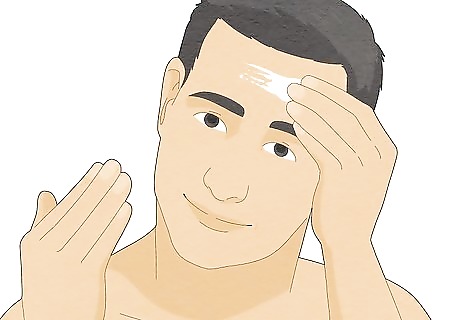
Moisturize your face and body once daily to keep it soft and supple. Squeeze the specified amount of moisturizer (usually a dime-sized blob) into one hand and rub it together between your palms. Then, work it into your forehead, cheeks, nose, and the area around your eyes until it’s no longer visible. Apply a liberal amount of body lotion to your body once daily as well. Repeat the process every morning and evening, or as frequently as needed for your particular skin type. For most men, a regular moisturizing lotion will work just fine. For tougher patches of skin like those on your knees and elbows, it may help to grab a body butter instead for deeper nourishing. When shopping around for a good moisturizer, make sure the word “noncomedogenic” appears somewhere on the bottle. This means the product won’t clog your pores, which can cause breakouts. However, if you have dry skin, then the product you choose may not include this on the label, and that is okay.
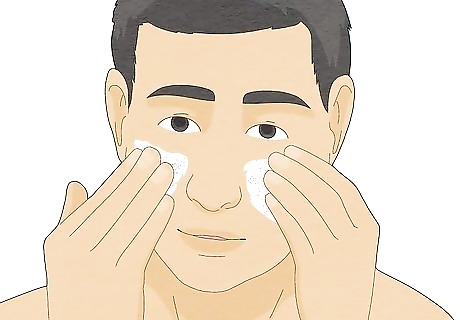
Exfoliate at least once a week to remove dead, flaky skin. Exfoliation is especially important for men because it can help to prevent ingrown facial hair. Lather up your loofah or a scrubbing pad designed specifically for exfoliating and go over the skin on your face and body using smooth, circular motions. Sloughing off the dead skin cells that have a tendency to accumulate naturally will reveal smoother, softer skin underneath. Over-exfoliating can cause your skin to become red and irritated, so limit your scrubbing sessions to 3-4 times per week. You can also use body washes and face creams that contain exfoliating particles if loofahs aren’t your thing. Just make sure you don’t get the kind with plastic beads, as these are bad for the environment.
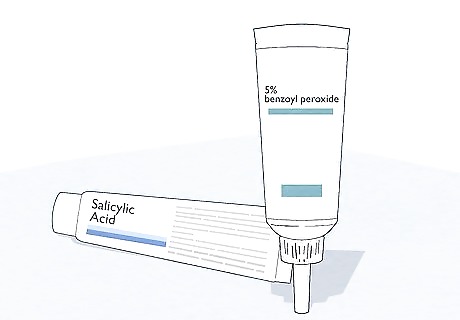
Use medicated skin creams to treat acne. If you often find yourself battling zits, blemishes, and imperfections, pick up a product that features salicylic acid or benzoyl peroxide as its active ingredient. Start out by applying the cream once a day first thing in the morning. After that, you can gradually work your way up to twice a day. Apply your acne cream of choice to your face, shoulders, back, and anywhere else you tend to break out As a last resort for acne, use a cream that contains at least 2% salicylic acid and follow it up with a topical lotion with 5-10% percent benzoyl peroxide. Keep in mind that this may leave your skin dry and flaky, so it is not something you should do regularly.
Protecting Your Skin from Damage
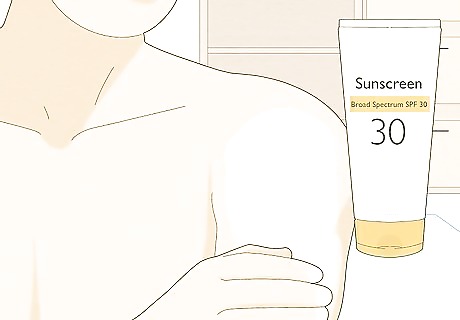
Put on sunscreen if you spend a lot of time outside. Make it a point to wear sunblock with an SPF of at least 30 every day. If you’re particularly fair-skinned, you might also try wearing a hat and keeping your skin covered with a layer of light clothing for added protection. Where skincare is concerned, it’s easier to prevent than to cure. Biting the bullet and rubbing on a little sunscreen now can keep your from ending up with dry, cracked, leathery skin later in life. Consistent sunscreen use can also reduce the threat of skin condition like eczema and melanoma, which are linked to UV rays.
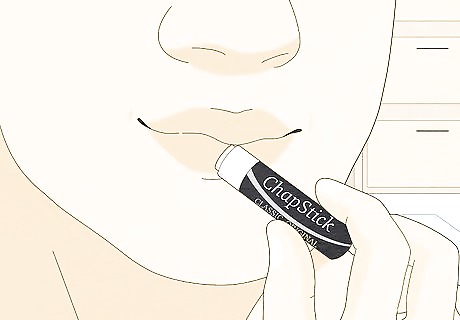
Apply chapstick or lip balm periodically to keep your lips soft. It’s especially important to keep some moisturizing lip balm handy in chilly weather. If possible, find a product that contains an SPF 5-10 sunblock to safeguard your vulnerable lip skin from the sun, as well. Some guys are reluctant to use lip products, but the fact is they make a big difference in the overall health (and look) of your lips. Throw your lip chapstick or lip balm in your pocket, or keep a spare tube in the glove compartment of your car. That way, you’ll never be caught without it. Make sure that you do not use chapstick too often or your lips may become dependent on it and no longer moisturize themselves.

Limit your exposure to harsh weather conditions. If you have no choice but to be outside for long periods of time, dress accordingly—bundle up with a high-collared coat, scarf, and gloves during the dead of winter and wear short-sleeved, breathable clothing in the sweltering summer months. You can’t control the weather, but you can at least plan for it. You may find it necessary to up your moisturizing routine in the wintertime. Cold air and high winds can severely dry out your face and lips, making them cracked and painful. On the flip side, heat often causes profuse sweating, which can leave you feeling greasy and increase the likelihood of a breakout.
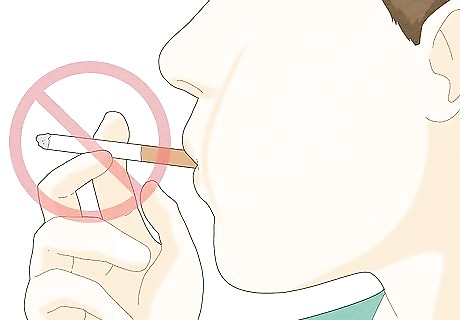
Cut back on harmful habits like smoking and drinking. Having an occasional puff or drink is alright, but excess consumption can wreak havoc on your skin. Cigarettes, in particular, are bad news, decreasing blood flow, producing wrinkles, and even aggravating the symptoms of psoriasis. As if you needed another reason to quit! If your cravings for nicotine get to be too much for you, consider switching to gum or patches instead. These types of aids make it possible to scratch that itch without treating your skin like a hog in a smokehouse.
Forming Healthy Habits

Eat a balanced diet consisting of whole foods and healthy fats. Fresh fruits and veggies are great choices, of course. Things like carrots, tomatoes, beans, berries, and leafy greens in particular are noted for their skin-health benefits. It’s also perfectly fine to eat lean meats like beef, chicken, and pork, as long as you don't go overboard. Studies have shown that the fatty acids in foods like avocados, dark chocolate, nuts, and coconut oil are also a major contributor to glowing skin. Cut back on red meat and loading up on foods like fish, eggs, and legumes if your goal is to keep your protein intake high without sabotaging your skin. Consider taking a once-a-day men’s multivitamin to ensure you’re receiving the all the essential nutrients you’re not getting from your diet.

Exercise for 30 minutes to an hour several times per week. Go for a run, lift weights, practice yoga, play sports, or enjoy any other form of activity that keeps you interested and gets you moving. What you do is less important than the fact that you’re doing it consistently. Physical activity promotes proper circulation, regulates your blood sugar, and flushes out undesirable substances through sweat. It’s also good for your heart, metabolism, brain function, and just about everything else!

Drink at least 2 litres (68 fl oz) of water a day. Staying hydrated is also key to clear skin. Classical wisdom dictates that you should drink about 8 8 fl oz (0.24 L) glasses in a 24-hour span. However, a better system is to simply drink when you feel thirsty. Just try not to dip below the recommended 2 litres (68 fl oz). A good way to tell whether you’re getting enough water is to take a look at the color of your urine the next time you go to the bathroom. If it’s clear or light yellow, it means you’re properly hydrated. If it’s dark yellow, pour yourself another glass. Stick to water, tea, and coffee as much as possible. Soda and other sweet drinks are full of sugar, and have been linked to acne and other skin problems.
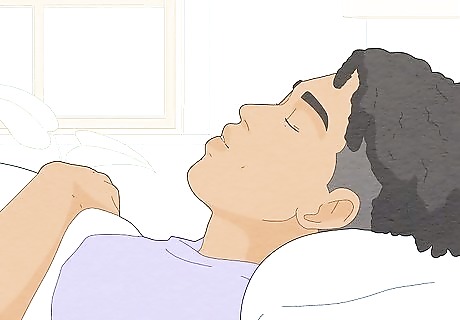
Make sure you’re getting 7-9 hours of sleep a night. The exact amount of rest each person needs can differ, but most experts agree that 7-9 hours is a good target to aim for to keep your looking and feeling your best. Sleeping is vital for the health of your skin, as it gives your body a chance to repair damaged tissue and produce healthy new cells. Lay on your back when you turn in for the night to keep your face from coming into direct contact with the pillowcase. If you prefer to sleep on your stomach, upgrade to a silk, satin, or high-thread-count cotton pillowcase. Rougher fabrics can create microscopic abrasions.

















Comments
0 comment